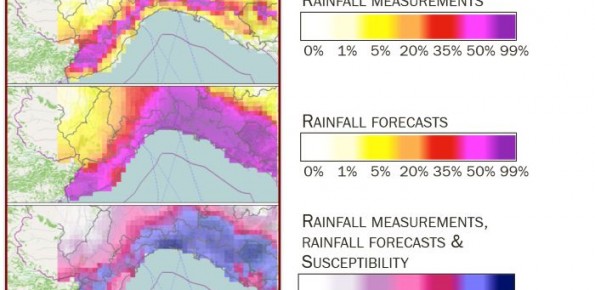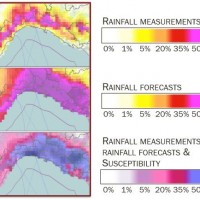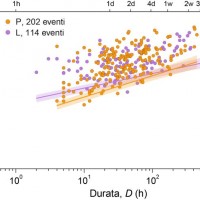SANF Liguria
Definition of rainfall thresholds for the possible occurrence of rainfall-induced landslides in the Liguria region and validation of the landslide forecasts issued by the SANF national warning system in the Liguria region

Background
In Italy, landslides are triggered by intense and/or prolonged rainfall. The spatial and temporal forecast of multiple landslides triggered by rainfall in wide areas relies primarily on empirical rainfall thresholds. It is widely believed that the thresholds are influenced by the local topographic (morphological), lithological, soil, and climatic settings. For this reason, it is necessary to define local rainfall thresholds. Reliable local thresholds require a large amount of information on rainfall-induced landslides in the considered area. Since 2013, CNR IRPI went in with the collection of information on rainfall events that have resulted in landslides in the Liguria region. Rainfall thresholds can be used in early warning systems for the prediction of the occurrence of rainfall-induced landslides. To respond to a request of the Italian national Department for Civil Protection (DPC), CNR IRPI designed and developed SANF, an Italian acronym for National Early Warning System for Rainfall Induced Landslides. SANF forecasts the possible occurrence of landslides by comparing rainfall measurements and forecasts with empirical rainfall thresholds at national scale. The SANF Liguria project aims at (i) defining ED (cumulated event rainfall-rainfall duration) empirical thresholds for the possible initiation of rainfall-induced landslides in the Liguria region, and (ii) validating the landslide forecasts issued by the SANF national warning system in the Liguria region. Future developments of the project involve the use of regional and local thresholds in the landslide warning system.
Purpose
Goals of the project are:
- The collection, organization and analysis of information on rainfall-induced landslides in the Liguria region;
- The definition of objective and reproducible empirical rainfall thresholds for the possible landslide occurrence in the regional territory and in sub-regional areas;
- The validation of the SANF forecast in the Liguria region.
Methods
A large amount of information on rainfall-induced landslides is required to define reliable rainfall thresholds and to validate the landslide forecasts issued by the SANF national warning system. Information was obtained searching mainly from chronicle sources (national and local newspapers available online), technical reports of landslide events compiled by local civil protection authorities.
CNR IRPI started a collaboration with the local fire brigades to collect reports of actions after landslide events.
Rainfall thresholds are defined using a frequentist method. The method allows calculating objective and reproducible thresholds corresponding to different exceedance probabilities.
Products
- Catalogue of rainfall events that triggered landslides in the Liguria region from 2004 to 2014;
- Regional and sub-regional ED (cumulated event rainfall-rainfall duration) empirical rainfall thresholds.
Conclusions
We expect that the results of the SANF Liguria project may contribute to mitigate – through prevention – landslide risk reducing the number of fatalities and injured people caused by rainfall-induced landslides in the Liguria region.




